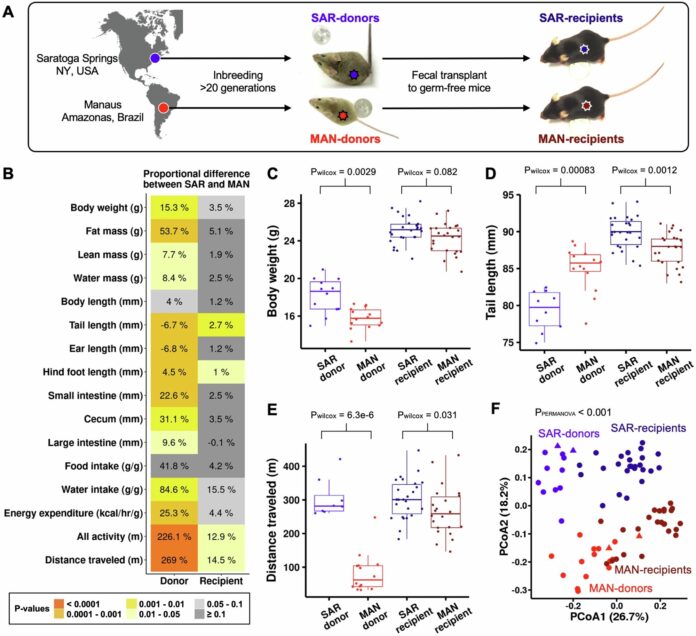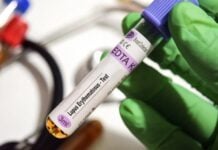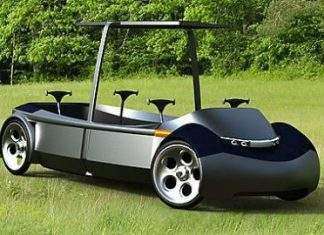Mice pups inherit more than just their parents’ genes. A new study shows that gut microbes can directly influence behavioral traits in offspring, even across multiple generations. This groundbreaking research from the Max Planck Institute for Biology Tübingen challenges our understanding of how traits are passed down and opens up intriguing possibilities about the role of the microbiome in shaping animal behavior.
For millions of years, animals and their resident microbes have evolved together in a delicate dance of interdependence. While we know gut bacteria, viruses, and fungi play crucial roles in digestion, vitamin production, and immune system training, scientists were uncertain if they could directly influence inherited traits in complex mammals like mice.
To explore this, researchers conducted a meticulous experiment using germ-free mice – lab-bred animals raised entirely without microbes to ensure a clean slate. They transplanted gut microbiota from wild-derived mice into these germ-free individuals. Then came the key twist: The scientists established two distinct lines of mice. In one line, they repeatedly selected the two least active mice and transferred their gut bacteria to a new batch of germ-free mice for each successive generation. This “low activity” selection line served as the experimental group. A control line with randomly chosen donor mice provided a baseline comparison.
The meticulous process was repeated over four generations. By starting with genetically identical animals and strictly controlling microbial transfers, the researchers could definitively attribute any behavioral changes solely to variations in gut microbes.
The Unexpected Link: Bacteria, Behavior, and Indolelactic Acid
After four generations, the “low activity” line exhibited significantly reduced movement compared to the control group. Analysis of their gut microbiomes revealed a compelling link: mice with lower locomotion harbored higher levels of Lactobacillus bacteria. These bacteria produce indolelactic acid (ILA), a substance known to influence behavior.
To confirm this causal relationship, researchers directly introduced Lactobacillus or ILA into other mice, and both interventions successfully suppressed their locomotor activity. This provided powerful evidence that specific gut microbes could indeed drive behavioral changes.
“This study is the first to experimentally demonstrate that selection for a host trait can lead to alterations in that same trait purely through microbiome transmission,” explained the researchers. “It highlights the significant role of microbiome-mediated inheritance in shaping animal ecology and evolution.”
This groundbreaking discovery opens up fascinating avenues for future research, potentially revealing how gut microbes influence not only behavior but also other complex traits like susceptibility to disease or even learning abilities across generations.































